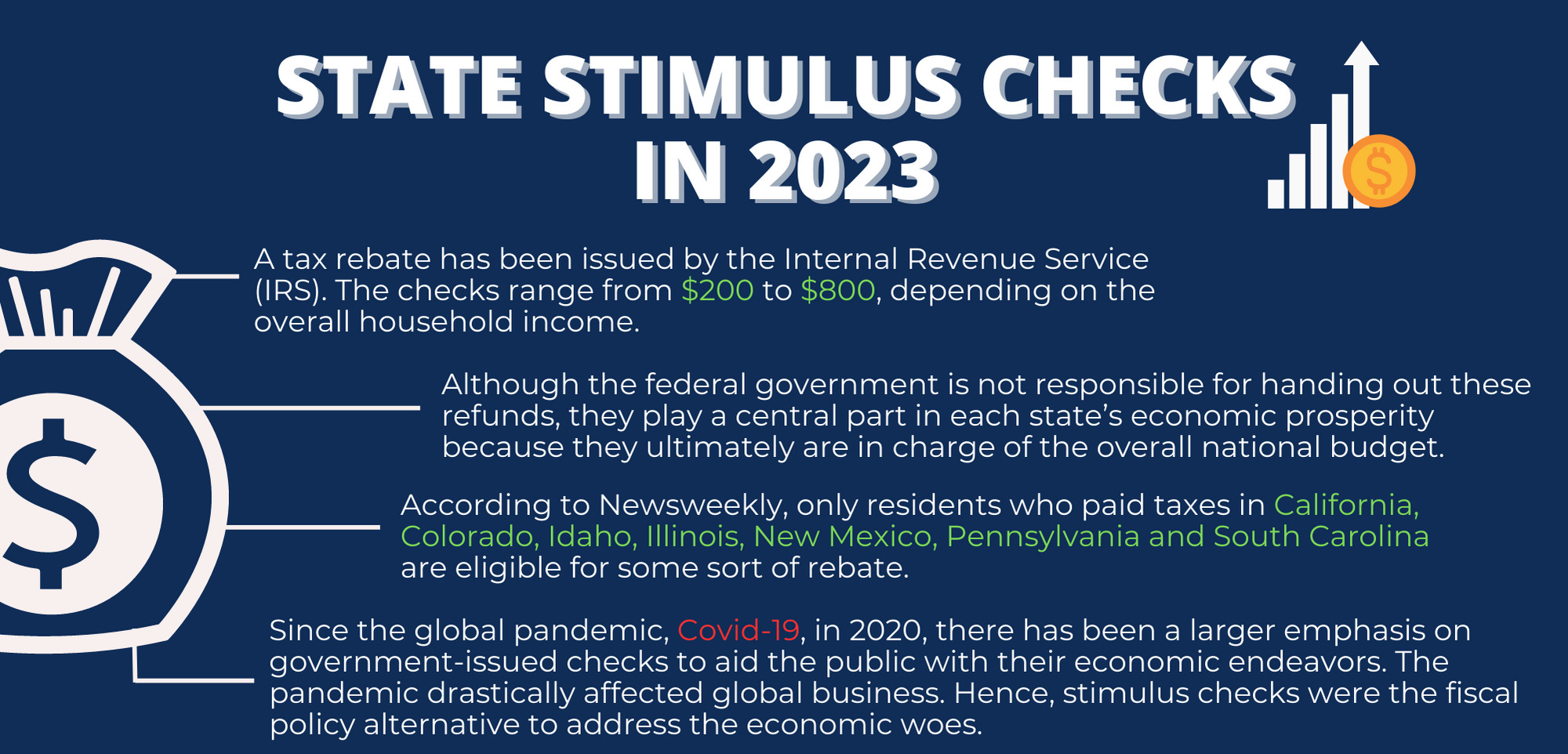
Following the rise in inflation in 2023, the Internal Revenue Service (IRS) has issued a tax rebate. The checks range from $200-800, depending on overall household income.
Most checks were distributed in January and February. However, some people are still waiting to receive them.
“As of Feb. 22, about 7.2 million direct deposits and 9.6 million debit cards have been issued worth more than $9.2 billion,” according to the Franchise Tax Board.
These numbers reflect how growing inflation has increased the median cost of living. Though the checks help families and individuals, inflation is still a major challenge in today’s society, especially in California.
“One of the reasons that we are experiencing the level of inflation that we are is actually due to stimulus checks (going back to the federal program),” said Dr. Chase Porter, assistant professor of political science.
“Inflation occurs when there is an increase in the amount of money consumers have to spend but not an increase in the amount of products available to spend it on.”
Porter said that creating money for consumers’ pockets can generate more problems than it solves.
“More demand plus stable or decreased supply equals higher prices,” Porter said. “So, paradoxically, by infusing stimulus into the system in the form of rebates to consumers, you are actually creating economic conditions that can make inflation worse. Again, it’s a short-term stopgap measure –albeit helpful to consumer pockets– that has a somewhat paradoxical negative effect in the long-term.”
Although the federal government is not responsible for handing out these refunds because they are not directly in charge of delivering checks in each state, they play a central part in each state’s economic prosperity because ultimately they are in charge of the overall national budget. However, only a few states will be eligible for the checks this time.
Only residents who paid taxes in California, Colorado, Idaho, Illinois, New Mexico, Pennsylvania and South Carolina are eligible for some sort of rebate, according to the Tax Foundation.
Dr. Chris McHorney, professor of political science, said each individual state is responsible for taking charge of its citizens.
“The federal government was responsible for distributing the previous stimulus payments,” McHorney said. “The state government is responsible for the recent one-time payments (Middle Class Tax Refund) to eligible Californians.”
Since the global pandemic in 2020, there has been a larger emphasis placed on government-issued checks to aid the public with their economic endeavors.
“The pandemic didn’t make checks more common,” said Elaine Ahumada, professor of political science.
“Rather, the pandemic changed the landscape of the economy.”
The COVID-19 pandemic drastically affected global business. Hence, stimulus checks were the fiscal policy alternative to address the economic woes. COVID-19 has influenced some positive outcomes, such as remote work and online education, which some enjoy more than the in-person alternatives. Many people who lost jobs during COVID have re-evaluated their life trajectories because of the pandemic.
“This was a result of the pandemic, and this had overarching effects on the economy,” Ahumada said.


